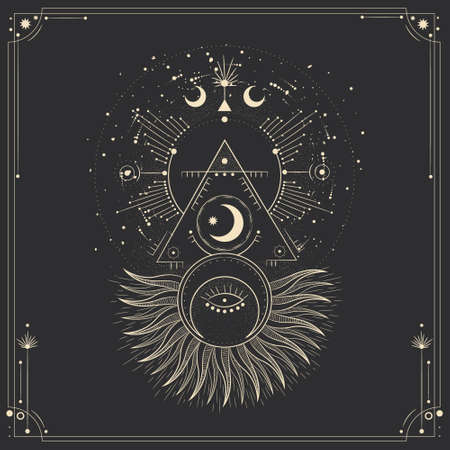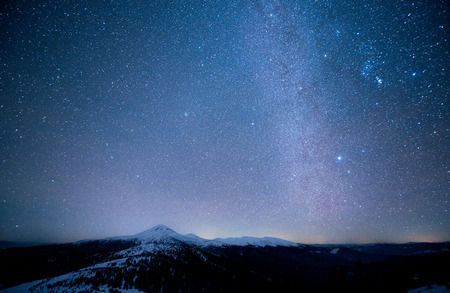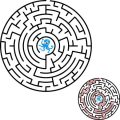Celestial Rhythms above Albion: An Astronomical Primer
Across the storied skies of Britain, the lunar eclipse stands as a testament to the intricate dance between Earth, Moon, and Sun. Far from being a mere shadow play, this celestial event is governed by precise astronomical laws that have fascinated British sky-watchers for centuries. When Albion’s night sky dims beneath the Earth’s umbral shadow, it evokes not only wonder but also a deep curiosity about the science at work above our green and pleasant land.
The phenomenon unfolds when the Earth positions itself directly between the Sun and the Moon, casting its shadow upon the lunar surface. This alignment does not occur at every full moon due to the slight tilt of the Moon’s orbit—a detail first scrutinised by early British astronomers such as Edmond Halley, whose meticulous observations in London helped demystify these rare occurrences. The geometry involved is elegant; only when the three celestial bodies are precisely aligned along what astronomers term the ‘line of nodes’ does Albion witness her own share of lunar eclipses.
Historically, Britons have been keen chroniclers of these events. From monastic records in medieval abbeys to meticulous entries in Greenwich’s Royal Observatory logs, each eclipse has been catalogued with both reverence and scientific rigour. Such records speak to a culture deeply attuned to the cosmic order—a tradition that marries ancient stargazing with modern astrophysics. In contemporary times, advances in observational technology allow even amateur astronomers in Cumbria or Cornwall to calculate with near-perfect accuracy when the next blood-red moon will grace their local horizon.
This scientific foundation underpins any astrological interpretation of lunar eclipses in Britain. To understand their reputed energetic influence, one must first appreciate the astronomical choreography that makes them possible—an interplay of gravitational forces and orbital mechanics that has shaped both myth and measurement throughout Albion’s history.
2. British Night Skies and Folklore: Eclipses in National Memory
The British Isles have long been a theatre for celestial spectacle, with lunar eclipses casting their shadow not only upon the land but also upon the collective psyche of its people. From the earliest megalithic sites to the pens of its greatest writers, Britain’s relationship with eclipses is woven through myth, literature, and enduring tradition. The ancient builders of Stonehenge, for example, aligned their monumental stones with astronomical events—suggesting an awareness of the moon’s cycles and an awe for moments when Earth’s shadow swallowed its silver disc. Such occurrences were regarded as omens or messages from the heavens, shaping both ritual and belief.
As centuries unfurled, the eclipse remained a potent symbol in folklore. Medieval chroniclers often described blood moons as harbingers of significant change or unrest; village tales spoke of eclipses as times when spirits walked abroad or fortunes shifted. Shakespeare himself harnessed this imagery in plays such as “King Lear,” where an eclipse signals disorder and upheaval: “These late eclipses in the sun and moon portend no good to us.” In literature and oral tradition alike, lunar eclipses became metaphors for transformation—a celestial dance echoing human drama.
| Era | Folkloric Interpretation | Cultural Reference |
|---|---|---|
| Neolithic (Stonehenge) | Alignment with lunar cycles; seen as sacred moments | Megalithic architecture |
| Medieval England | Eclipses as omens of turmoil or divine intervention | Chronicles & ballads |
| Elizabethan Era | Symbolism of chaos and change in art & literature | Shakespearean drama |
This tapestry of interpretation persists today. Modern Britons may be less likely to view an eclipse as an omen, yet fascination endures—public gatherings beneath cloudy skies, poetry readings, and even local news stories all bear witness to a national memory shaped by centuries of sky-gazing. Thus, every lunar eclipse becomes both a scientific event and a cultural ritual, linking contemporary observers with ancestors who once stood beneath the same shifting heavens.

3. Astrology’s Perspective: Interpreting Lunar Eclipses
Within the hallowed halls of British astrology, lunar eclipses have long been regarded as moments of profound symbolic potency, reverberating through both personal and collective spheres. Classic British astrological sources, such as William Lilly’s seminal work Christian Astrology, describe lunar eclipses as celestial harbingers—portending shifts in emotional tides, public sentiment, and communal consciousness. The moon, ever tied to the ebb and flow of feeling and memory, when shadowed by the Earth’s umbra, is seen by UK astrologers as a time when hidden truths surface and latent energies are unmasked.
British astrologers interpret these occurrences through a nuanced lens, considering not only the zodiacal sign and house in which the eclipse falls but also its angular relationship to the national chart of the United Kingdom. For example, should a lunar eclipse occur in Cancer or Capricorn—the signs historically linked with Britain’s own astrological identity—interpreters might anticipate significant matters arising around tradition, governance, and familial ties. In the tradition of Alan Leo, another luminary of British astrology, eclipses are said to catalyse cycles of release and renewal, their effects felt most keenly where they touch upon key planetary placements within an individual’s birth chart or that of the nation itself.
Furthermore, British practitioners often examine the proximity of an eclipse to fixed stars—a practice rooted in classical astrology yet retained within UK circles for its perceived precision in forecasting specific outcomes. The Royal Astrological Society’s archives abound with cases where lunar eclipses coincided with notable events in British history: shifts in monarchy, changes in government, or sweeping cultural movements. Thus, for those attuned to astrological rhythms within the UK, lunar eclipses represent not merely astronomical phenomena but pivotal nodes in the tapestry of fate—opportunities for introspection, realignment, and communal transformation.
4. The Influence on British Horoscopes and Local Zodiac Signs
The lunar eclipse, with its enigmatic veil and cosmic choreography, has long been considered a potent force within astrological tradition. In the context of the British Isles, where folklore and celestial observation entwine, the influence of lunar eclipses upon personal horoscopes takes on a distinctly local character. British astrology is often nuanced by archetypal traits such as stoicism, wit, resilience, and a deep-rooted connection to both land and legacy. Lunar eclipses are believed to activate these qualities within natal charts, intensifying or transforming their expression depending on planetary alignments at the time.
Archetypal British Traits in Astrological Context
Astrologers in the UK frequently note that signs like Taurus (steadfastness), Capricorn (pragmatism), and Virgo (discernment) are particularly resonant with traditional British sensibilities. When a lunar eclipse traverses these signs, it is said to catalyse introspection and practical shifts—ushering in periods marked by reevaluation of heritage, duty, and community ties. Conversely, eclipses affecting Gemini or Aquarius may stimulate innovation in thought or social reform, echoing Britain’s historical embrace of progress and invention.
Lunar Eclipses and Key Planetary Alignments
The unique geographical location of the British Isles further nuances eclipse interpretation. For instance, when an eclipse aligns closely with the Midheaven or Ascendant in charts cast for London or Edinburgh, public life and national identity come into sharp focus. These moments are viewed as opportune for collective renewal or even constitutional change—a theme recurrent in Britain’s storied history.
Impact Table: Lunar Eclipse Effects on Prominent British Zodiac Signs
| Zodiac Sign | Associated British Trait | Lunar Eclipse Effect |
|---|---|---|
| Taurus | Steadfastness | Reassessment of values; focus on security and tradition |
| Capricorn | Pragmatism | Restructuring ambitions; heightened sense of responsibility |
| Virgo | Discernment | Refinement of routines; attention to health and service |
| Gemini | Cleverness | Increased communication; potential for innovative ideas |
| Aquarius | Progressivism | Sparking social movements; questioning established norms |
This celestial dance thus weaves itself into the very fabric of British horoscopes, suggesting that lunar eclipses not only illuminate hidden aspects within individuals but also ripple outward to influence broader societal patterns. The interplay between local archetypes and global phenomena creates a uniquely British astrological experience—one that honours both ancestral wisdom and the ever-changing heavens above.
5. Modern British Practices: Rituals and Reflections
The allure of lunar eclipses continues to captivate modern Britons, weaving together strands of ancient reverence and contemporary curiosity. Across the United Kingdom, these celestial events are marked in ways that echo both the nation’s storied past and its dynamic present. In bustling cities like London and Manchester, astronomy societies and local enthusiasts organise “star parties”—public gatherings where telescopes are trained skyward, and participants mingle beneath the shifting shadows of the moon. These urban observances blend scientific fascination with communal spirit, often accompanied by talks from astronomers or astrologers who offer insights into the eclipse’s astrological implications.
Outside the city lights, rural Britain maintains a more intimate connection with lunar phenomena. In the rolling hills of the Lake District or along the windswept coasts of Cornwall, small groups convene for eclipse vigils steeped in folk tradition. Here, rituals may involve lighting candles, silent contemplation, or even recitations of poetry drawn from Britain’s rich literary canon. Such gatherings reflect a lingering respect for nature’s cycles—a recognition that while technology advances, the moon’s mysterious influence remains unchanged.
Within contemporary British astrology, these practices have found fresh expression. Many astrologers host online forums or workshops timed to coincide with eclipses, interpreting their energies through a distinctly British lens. Discussions often reference national history, collective identity, and the unique resonance of eclipses as they cross British skies. There is a growing trend towards mindful observation—encouraging individuals not only to witness but to reflect upon how these celestial dances mirror their personal and communal journeys.
Thus, in modern Britain, the lunar eclipse is neither wholly scientific spectacle nor purely mystical rite. It is a convergence—a moment when old beliefs and new understandings orbit each other in an ongoing celestial dance. Whether gathered on windswept moors or high-rise rooftops, Britons continue to mark these occasions with rituals that honour both the logic of astronomy and the enduring power of astrology.
6. A Celestial Bridge: The Lunar Eclipse’s Lasting Legacy in the UK
As the veils of night draw closed on another lunar eclipse, its echoes linger within both the skies above Britain and the hearts of those attuned to their celestial rhythm. The United Kingdom, with its storied past of druidic rites at Stonehenge and scholarly stargazing from Greenwich, provides a singular landscape where astronomy and astrology interlace. This enduring relationship between scientific observation and symbolic interpretation forms a celestial bridge—one that both grounds the British psyche in tradition and propels it towards renewed cosmic curiosity.
The Enduring Dialogue Between Science and Spirit
The lunar eclipse, viewed through the lens of British culture, is never simply an astronomical phenomenon. It becomes a ritualised narrative—a conversation between what is measurable and what is felt. Across centuries, from medieval chroniclers to modern astrologers, each eclipse has been woven into the fabric of national consciousness as a harbinger, a mirror, or a prompt for introspection. In towns and countryside alike, Britons have gathered under clouded or clear skies to bear witness to this celestial spectacle, reflecting a uniquely British blend of scepticism and wonder.
Cultural Resonance in a Changing World
This synthesis between astronomical events and astrological meaning continues to evolve within the UK’s shifting cultural landscape. The lunar eclipse has become not only a marker of time but also a touchstone for exploring personal and collective transformation. Whether interpreted as an omen in ancient times or as a catalyst for self-discovery in contemporary astrology circles from Edinburgh to Cornwall, the eclipse’s legacy endures as a subtle yet potent influence on how Britons relate to fate, fortune, and the mysteries of existence.
A Continuing Interplay: Legacy and Renewal
In summation, the lunar eclipse stands as an enduring symbol—a celestial bridge—connecting Britain’s empirical traditions with its rich heritage of myth and meaning-making. The cyclical dance of shadow and light overhead mirrors the ongoing interplay between external events and internal narratives unique to these isles. As each eclipse passes, it leaves behind not only data for astronomers but also stories, insights, and fresh beginnings for those who look skyward with hearts open to both science and spirit. Thus does the legacy of lunar eclipses continue to shape astrological energies in the UK: timeless, evolving, and ever resonant with the British soul.


